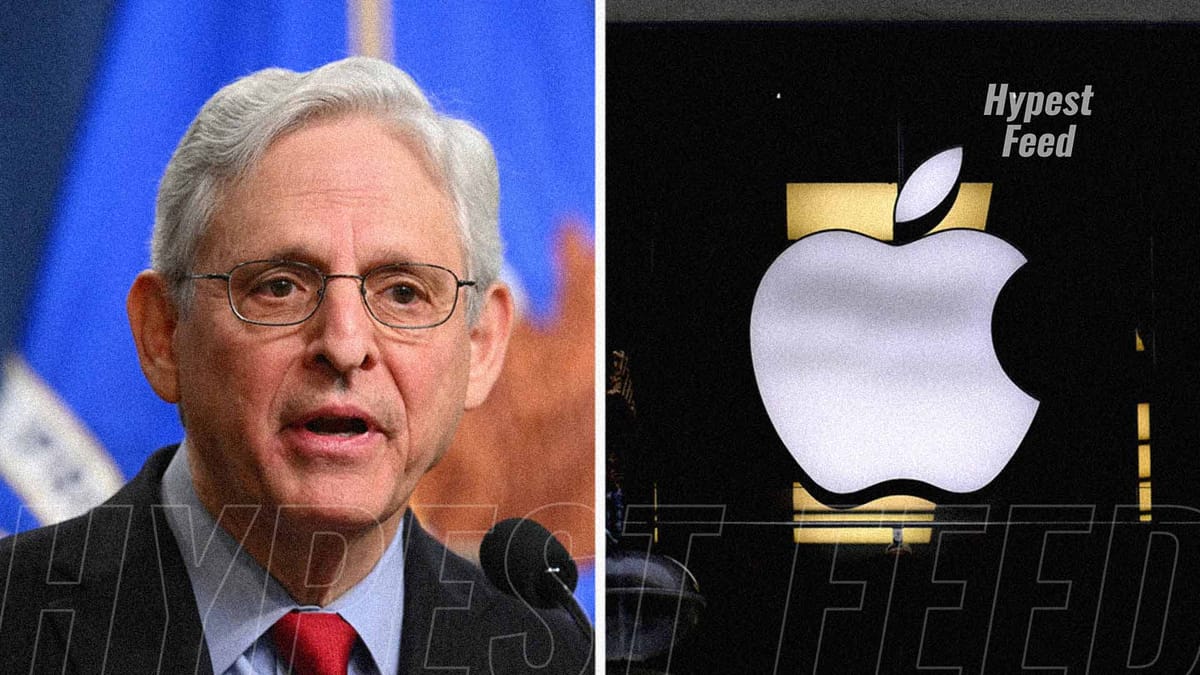The United States has initiated a groundbreaking lawsuit against Apple, alleging the tech giant's monopolistic practices in the smartphone market and its suppression of competition.
According to the legal action, the Department of Justice contends that Apple has exploited its control over the iPhone app store to "lock in" both customers and developers.
The lawsuit accuses Apple of resorting to illicit tactics to undermine apps perceived as competitive threats and diminish the appeal of rival products.
Apple has vehemently pledged to contest the lawsuit, refuting the allegations leveled against it.
This extensive complaint, filed in a federal court in New Jersey alongside attorneys general from 16 states, represents one of the most significant legal challenges Apple has faced thus far. Over recent years, Apple has faced mounting criticism regarding its business practices.
The lawsuit alleges that Apple has employed a range of manipulative tactics and imposed restrictions on access to its hardware and software, all aimed at enhancing its profits while simultaneously inflating costs for consumers and stifling innovation.
Attorney General Merrick Garland, in a press conference announcing the suit, asserted that Apple has sustained its monopoly power in the smartphone market not merely by outperforming competitors on merit but by violating federal antitrust laws.
Apple finds itself embroiled in a substantial legal battle as it becomes the latest tech giant to face accusations of monopolistic practices.
The 88-page complaint lodged against Apple by the US authorities delves into five key areas where the company is alleged to have wielded its power inappropriately.
Among the allegations is Apple's purported manipulation of its app review process to stifle the development of potential competitors, particularly so-called super apps and streaming apps, out of concern that they might diminish the allure of iPhones for customers.
Additionally, the complaint accuses Apple of impeding the compatibility of iPhones with smartwatches made by rival companies and obstructing banks and other financial entities from accessing its tap-to-pay technology, thereby enabling Apple to rake in billions in fees from processing Apple Pay transactions.
Moreover, the complaint scrutinizes Apple's treatment of messages originating from rival phones, highlighting the company's practice of distinguishing them with green bubbles and curbing their functionalities. This, the complaint contends, has contributed to a "social stigma" that has bolstered Apple's dominance in the market.
In response to these allegations, Apple has vehemently defended its practices, asserting that its customers are loyal due to their satisfaction with its services. The company contends that, under US law, it has the freedom to choose its business partners and cites privacy and security concerns as justifications for its rules.
Apple has indicated its intention to contest the lawsuit vigorously, expressing confidence that it will prevail.
The outcome of this legal battle is expected to pivot on the question of motivation, according to legal experts. If the government prevails, it could compel Apple to revamp its existing contracts and practices or even lead to a potential breakup of the company.
Following news of the lawsuit, Apple's shares experienced a notable decline, reflecting investor apprehensions about the ramifications of the legal proceedings.
Any resultant changes from the lawsuit would likely take years to materialize as the case navigates through the legal system.
Legal scholars have described the case as "a blockbuster," underscoring its significance amid similar legal challenges faced by other major tech companies such as Google, Meta, and Amazon.
At its core, the case revolves around efforts to enhance functionality between smartphones and make technology and software more accessible to consumers and businesses, experts say.
Apple has faced mounting legal scrutiny over its iOS ecosystem and business practices, including an ongoing legal battle with Epic Games over the popular game Fortnite.
Last month, Apple was slapped with a hefty fine of €1.8 billion (£1.5 billion) by the EU for violating competition laws in the realm of music streaming.
The European Commission found that Apple had abused its dominant market position by restricting streaming services from informing users of payment options outside the Apple app store. Apple has announced its intention to appeal the decision.
Legal experts note that the US Department of Justice's lawsuit against Apple represents a more expansive legal challenge compared to previous actions in the EU.
They argue that the lawsuit underscores the need for regulatory intervention to address what they perceive as unfair practices by Apple, which they claim are detrimental to startups, stakeholders, customers, and potentially even shareholders.
According to the US Department of Justice, Apple's share of the US smartphone market exceeds 70%, with its dominance extending to over 65% of the broader smartphone market.



Member discussion: